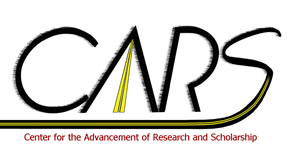Examination of Knowledge and Application of Health Promotion Theories and Models for HIV/AIDS Education and Prevention in Developing Countries
Location
Hart 117
Start Time
10-5-2012 11:15 AM
End Time
10-5-2012 11:45 AM
Description
A presentation of FLRG project data that examined the effectiveness of HIV/AIDS education in selected developing countries in Summer 2011. The focus was Nigeria where HIV/AIDS has been a major problem because many Nigerians (NGO) educators have not been applying theories/models in their basic prevention education. The study consisted of two phases, namely: (a) “Training the Trainers Model “ phase, and (b) “ Evaluation Research” phase which examined how “Training the Trainers” models helped selected NGO educators in understanding how to teach prevention not only for HIV/AIDS infected Nigerians but also Nigerian children in general. Sixty NGO educators were randomly selected and assigned into experimental and control group, with thirty NGO educators in each group. The experimental group participated in “Training the Trainers” workshop, while the control group did not. Both groups were pretested before the workshop, and later took a posttest after the workshop with the same instrument used in the pretest. Analysis of Covariance with multiple linear regression, and T-test were used to analyze the data to determine the treatment effect. Results showed that “Training the Trainers Model" helped the NGO educators (NGOs) to understand how to provide HIV/AIDS education through the application of health behavior change theories and models.
Examination of Knowledge and Application of Health Promotion Theories and Models for HIV/AIDS Education and Prevention in Developing Countries
Hart 117
A presentation of FLRG project data that examined the effectiveness of HIV/AIDS education in selected developing countries in Summer 2011. The focus was Nigeria where HIV/AIDS has been a major problem because many Nigerians (NGO) educators have not been applying theories/models in their basic prevention education. The study consisted of two phases, namely: (a) “Training the Trainers Model “ phase, and (b) “ Evaluation Research” phase which examined how “Training the Trainers” models helped selected NGO educators in understanding how to teach prevention not only for HIV/AIDS infected Nigerians but also Nigerian children in general. Sixty NGO educators were randomly selected and assigned into experimental and control group, with thirty NGO educators in each group. The experimental group participated in “Training the Trainers” workshop, while the control group did not. Both groups were pretested before the workshop, and later took a posttest after the workshop with the same instrument used in the pretest. Analysis of Covariance with multiple linear regression, and T-test were used to analyze the data to determine the treatment effect. Results showed that “Training the Trainers Model" helped the NGO educators (NGOs) to understand how to provide HIV/AIDS education through the application of health behavior change theories and models.

Comments
Moderator: Sandra Popiden